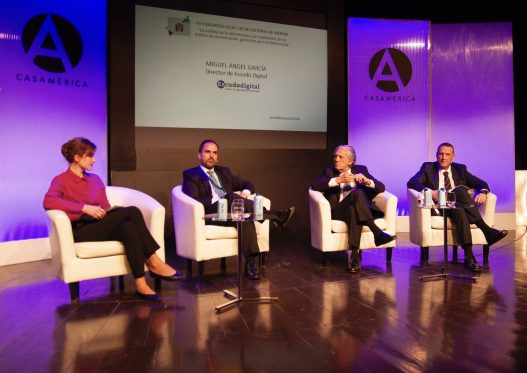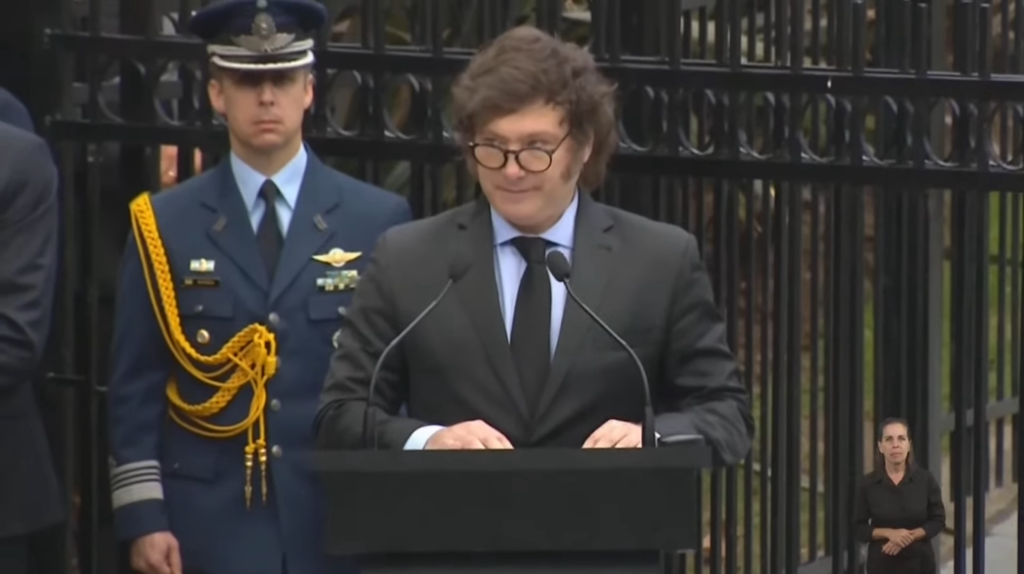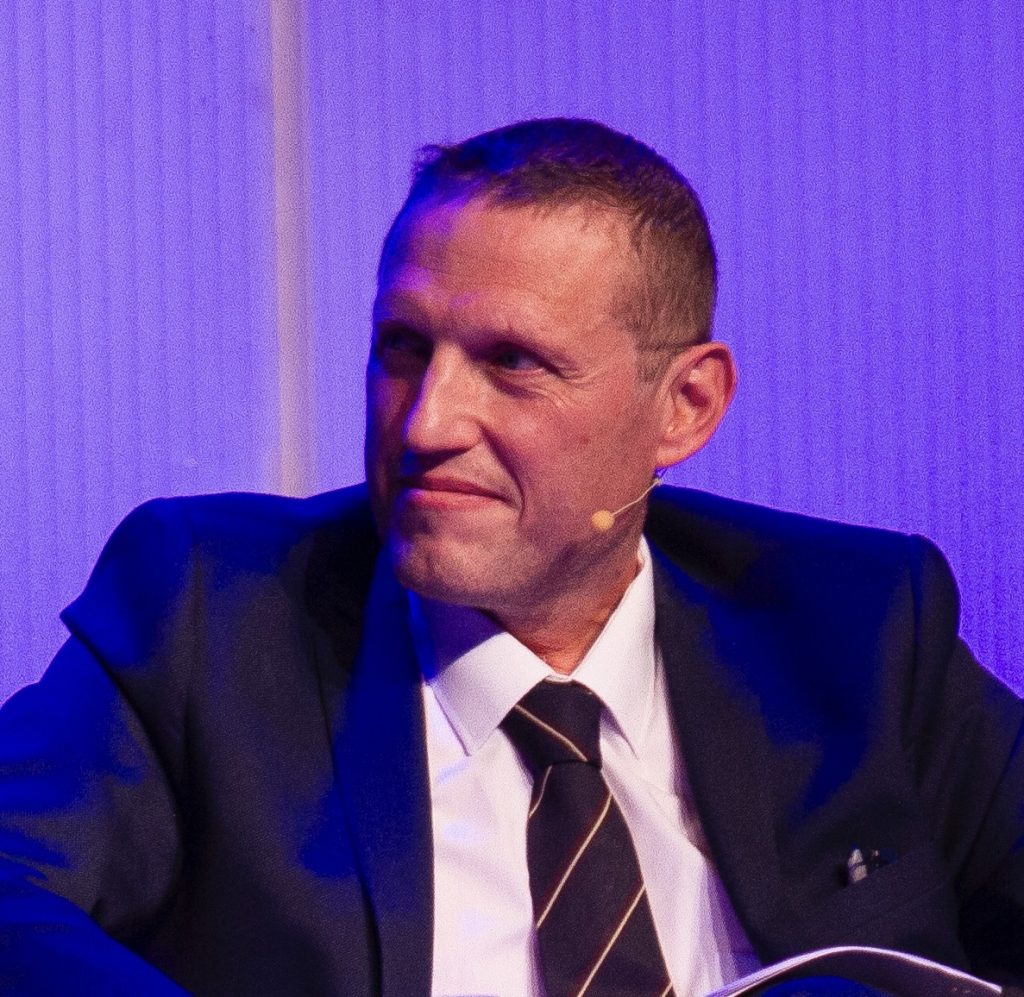
IA IN JOURNALISM: A LURKING DEMON OR A SAVING ANGEL?
The question is no longer whether Artificial Intelligence (AI) will be used in journalism but how it will be used and what effects it will have on the public and in newsrooms.
These concerns and expectations were addressed by three experts who participated in the panel called “Technology and Media,” which was moderated by German journalist Jennifer Wilton, editor-in-chief of Die Welt newspaper. It was one of the eight forums that took place at the Congress of Media Editors of the European Union, Latin America and the Caribbean, held March 18-21, 2024 in Madrid and Brussels.
The panel in which the three experts participated took place on March 18, at Casa de América, in the center of Madrid. In this video by Canal Europa you can see a summary of the activities of that day.
The experts who participated were Javier Ramos, rector of the Rey Juan Carlos University; Diego López Garrido, executive vice-president of the Alternativas Foundation, and Miguel Ángel García, director of the Escudo Digital media.
WHAT IS ALREADY BEING DONE
García presented some examples of how newsrooms are already using AI. At the Worcester Journal in Berrow, UK, journalists enter into an AI system (based on ChatGPT) trusted content such as committee minutes, which the tool processes and transforms into news with the most relevant part of the document.
News Corp Australia produces thousands of articles weekly using generative AI. The local newspaper in Nottinghamshire, UK, experiments with AI to generate summaries of long articles.
In Spain, Medusa, a project of the Vocento group, uses automated journalism to generate information on the situation of beaches and ski slopes.
El Confidencial uses the AnaFut bot, “a robot in the form of an algorithm” that acts as a sports journalist.
RTVE, in collaboration with the EFE agency and the startup Narrativa, is carrying out a pilot project for automatic text writing and audiovisual automation.
In Radio 3 Extra, RTVE has launched ‘Hiperia’, a program of audiovisual content created entirely by artificial intelligence and addresses weekly topics of music and popular culture. The AI generated the character and its voice, as well as the script and content of each program, which is verified entirely by editors of the channel.
HOW CAN IA HELP?
Javier Ramos, rector of the URJC, said that the challenge for the media is to find a way to apply AI not just to have it but to improve the quality of the information they offer to the public.
Very large companies, such as the Washington Post, El País, the Axel Springer group, are applying this concept, explained Ramos.
There are three areas of the journalistic process in which the best way to apply AI is being sought.
The first, Rector said, is information gathering. AI can help journalists analyze large amounts of data, identifying anomalous patterns in these huge databases that can lead to profiling a story.
It is also being used to verify news, to know if the statements that appear on the Internet are real, if the photographs that arrive are not deep fakes. These are important aids in the context of disinformation in today’s society.
The second field is editing. AIs help to improve the writing of texts, from well-known systems such as grammar and spelling checkers to news headline generators. There are also technologies for translating texts into other languages, an option that helps the profitability of the media due to the expansion it entails.
There are even tools that help to detect biases in the wording of news and to analyze the feelings generated by what is published and thus better understand public opinion.
Finally, Ramos explained, AI can be used in the distribution of information, since, among other things, it allows a more precise segmentation of the audience.
JOBS AT RISK?
In general, AI may mean the loss of jobs in different industries, but also the creation of new jobs. The balance may not yet be favorable to humans. Miguel Ángel García brought up a recent study by the Randstad company, which has calculated that the incorporation of AI in Spanish companies could mean the disappearance of 2 million jobs by 2033. At the same time, there is the potential for 1.6 million jobs to be generated. This means the possibility of 400,000 net job losses over the next ten years in Spain.
Faced with a scenario like this, García and Ramos propose that the media (and companies in general) should be proactive.
The idea is not that AI should replace the journalist, but that it should be a tool to help him/her, to give him/her more time to do the work that a machine cannot do.
García explained what the person responsible for the implementation of AI at the Worcester Journal said. He asserted that “AI can’t be at the scene of an accident, in a courtroom, at a council meeting, it can’t visit a grieving family or look someone in the eye and tell them they’re lying. All it does is free up journalists to do more of that.”
For Ramos, it is essential that AI be included in the training of journalists so that they are aware of these technologies, know how to apply them and how to help them in their work. Workshops on AI can also be held in newsrooms to see which technologies should be used. This is something that should happen in all companies and institutions. The URJC, he said, is working on applying AI in all its processes.
THE PERVERSE USE OF TECHNOLOGY
Diego López Garrido, from Fundación Alternativas, emphasized the capacity for massive and rapid distribution of disinformation that today’s technologies allow.
The generation and dissemination of disinformation, of false news, is intentional, it is created to manipulate and influence, to generate hostilities, explained López Garrido. He gave as an example what happened with the triumph of Brexit and Donald Trump, which were possible, he said, because Facebook made available to interested parties millions of voters’ personal data, to whom manipulated information was sent for electoral purposes.
“There is a whole industry of disinformation,” he said. He noted that Russia is among the largest producers of disinformation, also China.
Such scopes would not be possible without the development of Artificial Intelligence. Therefore, he emphasized, the massive dissemination of disinformation has an impact on democracy, it affects it directly.
He considered that it is necessary to regulate through laws the uses given to technology. “Freedom of information and transparency are principles that should be part of AI,” he said.
ABOUT THE CONGRESS OF EDITORS
The VII Congress of Media Editors of the European Union, Latin America and the Caribbean is an event organized by Grupo Prestomedia with the support of EditoRed, the European Commission and the European Parliament, Telefónica, Iberia and the Community of Madrid, as well as the collaboration of Universidad Rey Juan Carlos, Turismo de Galicia and Casa de América, and with Prensamedia as editorial partner.
This year, the general theme of the Congress was: “The quality of information and the credibility of the media, guarantees for democracy”. The meeting took place on March 18-19, 2024 in Madrid, Spain, and on March 20-21 in Brussels, Belgium.
————
This text is free to use. If you use it, please cite EditoRed.



